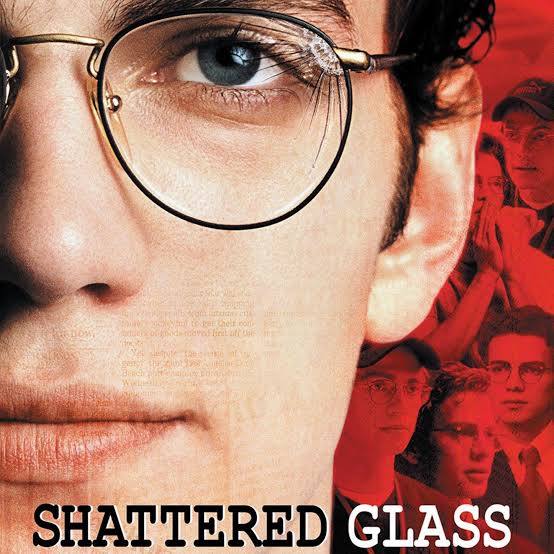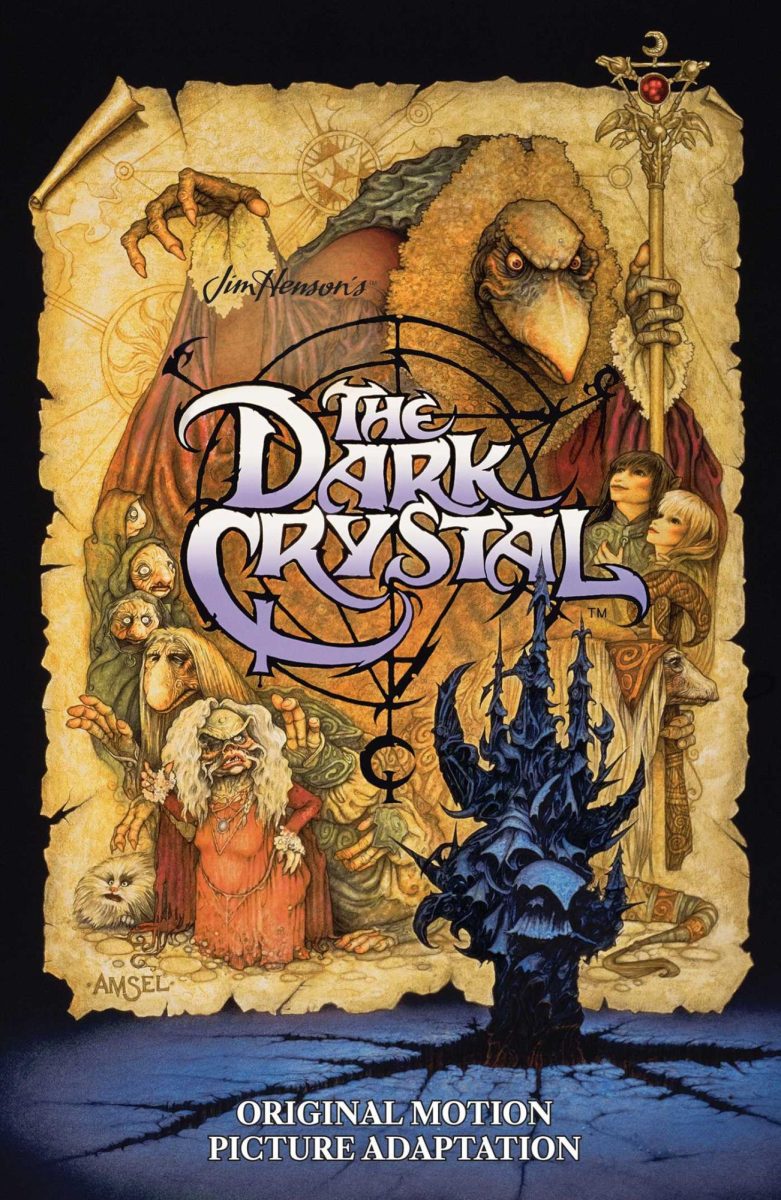What happens when a journalist, trusted by readers and colleagues alike, builds his career on lies? Shattered Glass dives deep into one of journalism’s biggest scandals, revealing the fine line between ambition and deception. Directed by Billy Ray, this drama is set in the late 1990s, primarily at The New Republic magazine offices. This film follows Stephan Glass, a young journalist at The New Republic, who is exposed for fabricating numerous articles. As his deception unravels, he often seeks sympathy with the line, “Are you mad at me?” As editor Chuck Lane and Forbes journalist Adam Penenberg work to expose the truth, leading to a media firestorm. I first watched Shattered Glass in my Journalism class, and I’ve seen it at least four times since because I really enjoy the film’s exploration of ambition and deception.
Stephan Glass, played by Hayden Christensen, is a charismatic but manipulative journalist who fabricates stories to maintain his reputation. Christensen effectively captures his charm and growing desperation, skillfully portraying Glass’s ability to manipulate those around him while slowly revealing the cracks in his facade. Chuck Lane, played by Peter Sarsgaard, the new editor of The New Republic, prioritizes honesty over popularity, choosing to expose Glass’s fabrications despite the personal and professional risks. Sarsgaard delivers a restrained but powerful performance. Adam Penenberg, played by Steve Zahn, a journalist from Forbes who investigate Glass’s articles and helps bring his fraud to light. Zahn’s portrayal adds an essential outsider’s perspective. The actors are well suited for their roles, with Christensen portraying Glass’s charm and insecurity convincingly. Sarsgaard’s performance as Chuck Lane contrasts with Glass’s erratic behavior, making the tension between them more impactful.
The cinematography in Shattered Glass heightens tension and reflects Glass’s unraveling deception. Close up shots capture his nervous energy, while shaky handheld moments emphasize his growing desperation. During confrontation, framing makes the audience feel the discomfort and suspicion building around him. Lighting also plays a key role. The newsroom’s warm tones create a sense of trust, but as Glass’s lies surface, darker, shadowed shots add to the unease. The film also tricks the audience, visualizing Glass’s fabrications as if they were real, only to later reveal they never happened. These cinematographic choices make Shattered Glass more than just a drama, they immerse the audience in the psychological weight of the story.
One theme that is important in this film is the abuse of power, specifically within journalism and media ethics. Glass wins people over with little charming comments and an almost puppy dog like attitude, making it hard for them to see the lies beneath. His manipulation extends beyond his writing, he uses charm and emotional appeals, like his famous line, “Are you mad at me” to gain pity. Chuck Lane, on the other hand, represents responsible leadership. Unliked at first due to “replacing” the chief editor, he is then put into a difficult position when Glass’s work is being questioned. Glass plays mind games with his colleagues, making them believe Chuck is out to get him, when in reality, Chuck is doing the opposite. This film serves as a warning about the dangers of unchecked ambition and the necessity of accountability in positions of power. By illustrating both the misuse of power exercise of power, Shattered Glass highlights the importance of ethical journalism and truth in storytelling.
I highly recommend Shattered Glass, giving it a rating of 9/10. The film excels in storytelling, strong performances, and its gripping portrayal of a real life scandal. The tension between ambition and ethical responsibility leaves viewers questioning media integrity. Hayden Christensen’s portrayal of Glass and Peter Sarsgaard’s performance as Chuck, and are particularly compelling, adding emotional depth to the narrative. This film is a must watch for anyone interested in journalism and ethics. Shattered Glass serves as a powerful reminder of the important of accountability and truth.







